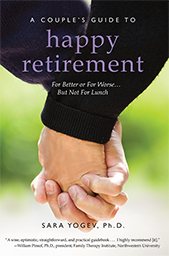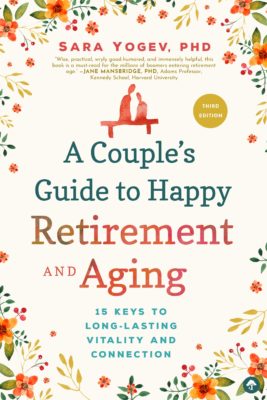Oct 6 2012
Happily ever after, even in retirement?
Happily ever after… Really?
Forever is a very long time, especially in marriage. People change, life circumstances change, and it can become difficult to remember the commitment to a marriage.
Marital bliss in retirement is the goal of A Couple’s Guide to Happy Retirement, and to achieve it, you and your partner need to look at all your options rather than focus on the traditional measures of retirement happiness . . .
My goal is to help retirees find a way to live together happily ever after, recognizing that how people interpret that phrase may have changed a bit. Most people are searching for the right mix of money with meaning, of profits with purpose, of using their many experiences in ways that aren’t just contained in photo albums but are significant and memorable. In other words, they seek an intersection of continued income, with purpose and impact, something they will be remembered for.
—From A Couple’s Guide to Happy Retirement by Sara Yogev, published October 2012 by Familius





